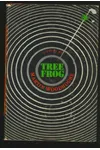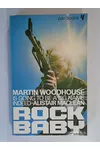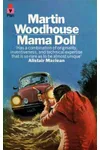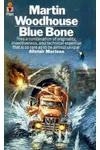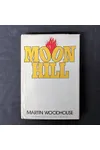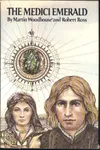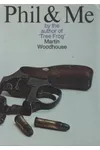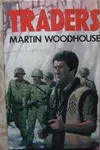Picture a British storyteller who blended science, wit, and adventure to pioneer the techno-thriller—meet Martin Woodhouse! A polymath with a knack for turning complex ideas into gripping tales, Woodhouse captivated readers with his intelligent protagonists and dry humor. From scripting *The Avengers* to crafting the Leonardo Da Vinci series, his work remains a thrilling testament to brains over brawn.
The Making of Martin Woodhouse
Born on August 29, 1932, in Romford, England, Martin Charlton Woodhouse was a true Renaissance man. Educated at Salisbury Cathedral School and Oundle, he studied Natural Sciences at Downing College, Cambridge, and Medicine at St Mary’s Hospital. His insatiable curiosity led him to diverse careers as a pilot, engineer, and computer designer, including building 'Lettuce,' a logical truth computer. National Service with the RAF at Farnborough’s Radar Research Establishment honed his technical expertise, which later infused his writing with authenticity.
Woodhouse’s writing career kicked off with television, scripting episodes for *The Avengers* and *Supercar* with his brother Hugh. His transition to novels in the 1960s showcased his ability to weave scientific precision into suspenseful narratives, setting the stage for his unique contribution to the techno-thriller genre.
Martin Woodhouse’s Unforgettable Stories
Woodhouse’s debut novel, *Tree Frog* (1966), introduced Giles Yeoman, an aeronautical engineer navigating Cold War espionage with drones—a techno-thriller ahead of its time. The Giles Yeoman series, including *Rock Baby* (1968) and *Moon Hill* (1976), features reluctant heroes using technical savvy to outwit foes, reflecting Woodhouse’s engineering background and sharp wit.
His most celebrated work, the Leonardo Da Vinci series, co-authored with Robert Ross, reimagines the Renaissance genius as a swashbuckling engineer. In *The Medici Guns* (1974), Leonardo uses artillery and geometry to break a siege, while *The Medici Emerald* (1976) sees him decoding a cryptic gem to save his lover. *The Medici Hawks* (1978) pits him against invaders with kite-gliders, blending historical accuracy with steampunk flair. Woodhouse’s prose, laced with sarcasm and technical detail, paints protagonists who defy authority and solve problems with intellect.
Other works, like *The Remington Set* (1976, under pseudonym John Charlton) and *Traders* (1980), showcase his versatility, spanning crime and arms-trade thrillers. His television scripts, including *The Protectors*, further highlight his knack for blending humor and suspense.
Why Martin Woodhouse Matters
Martin Woodhouse’s pioneering techno-thrillers predate Michael Crichton’s *The Andromeda Strain*, carving a niche for cerebral heroes in a genre often dominated by physical prowess. His Leonardo Da Vinci series, blending historical fiction with speculative technology, offers a unique lens on a familiar icon, appealing to history buffs and adventure fans alike. Woodhouse’s influence extends to modern techno-thrillers, where scientific ingenuity drives the plot.
His legacy also lies in his trailblazing e-books with Illumination Publishing in the 1980s, showcasing his forward-thinking approach. Though lesser-known today, Woodhouse’s blend of humor, intellect, and innovation continues to inspire readers seeking smart, thrilling tales.
- Born: August 29, 1932, Romford, England
- Key Works: *Tree Frog*, *The Medici Guns*, *The Medici Emerald*, *The Medici Hawks*
- Notable TV: *The Avengers*, *Supercar*
- Died: May 15, 2011
Snag *The Medici Guns* and dive into Martin Woodhouse’s thrilling world of wit and invention!
